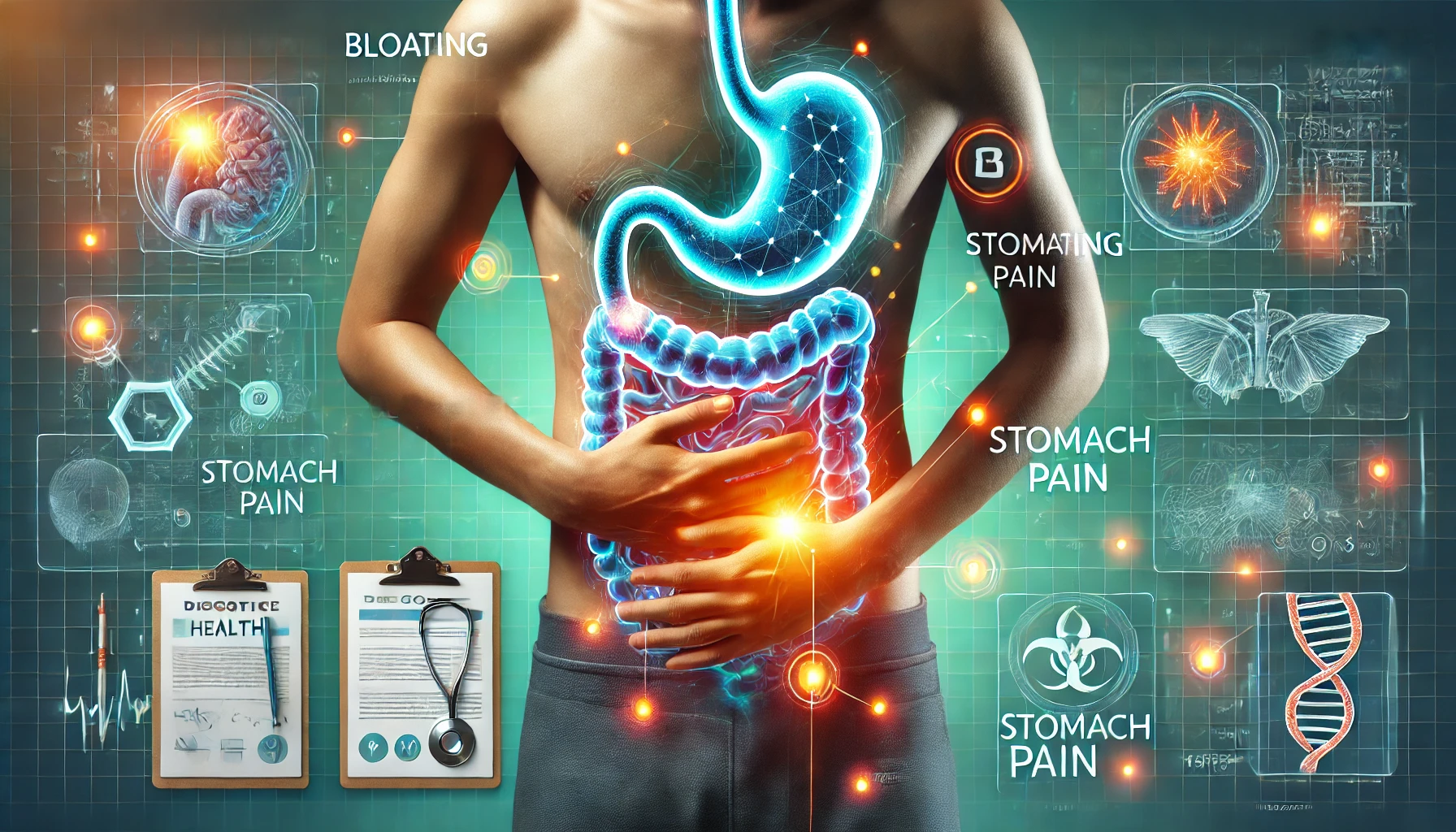Bloating, stomach pain, and gas are common digestive complaints that most people experience occasionally. While they are often harmless and manageable with simple lifestyle adjustments, persistent or severe symptoms could indicate an underlying health issue that requires medical attention. Here, we’ll explore 10 key points to help you understand when it’s time to consult a doctor, supported by relevant studies.
1. Symptoms Persist for More Than Two Weeks
If bloating, stomach pain, or gas lasts longer than two weeks, it could signal a chronic condition like irritable bowel syndrome (IBS) or small intestinal bacterial overgrowth (SIBO). A 2014 study published in the American Journal of Gastroenterology found that persistent bloating was a common symptom among IBS patients, affecting over 76% of participants.
2. Unexplained Weight Loss
Unexpected weight loss accompanying bloating or gas can be a red flag for more serious conditions like celiac disease, inflammatory bowel disease (IBD), or even gastrointestinal cancer. A 2018 study in The Lancet Gastroenterology & Hepatology emphasized the importance of early diagnosis in patients reporting these symptoms.
3. Severe or Sharp Abdominal Pain
While mild stomach discomfort is often harmless, severe or sharp pain could indicate appendicitis, gallstones, or a bowel obstruction. Research published in the Journal of Emergency Medicine in 2020 highlighted that patients presenting with acute abdominal pain should seek immediate medical attention.
4. Presence of Blood in Stool or Vomit
Blood in your stool or vomit, along with bloating or pain, could indicate gastrointestinal bleeding, ulcers, or colorectal cancer. A comprehensive review in Gut journal (2017) recommended urgent endoscopic evaluation in such cases.
5. Persistent Changes in Bowel Habits
Sudden or prolonged changes in bowel habits, such as diarrhea, constipation, or a mix of both, along with bloating, may point to conditions like IBS, Crohn’s disease, or even colon cancer. A 2021 study in Clinical Gastroenterology and Hepatology found these symptoms were significant predictors of colorectal abnormalities.
6. Symptoms After Eating Certain Foods
If your symptoms appear after consuming specific foods, it might be due to food intolerances (e.g., lactose or gluten). A study in Nutrients journal (2019) reported that up to 15% of the population has some form of food intolerance, which can lead to significant discomfort.
7. Fever Along with Symptoms
A fever combined with bloating, pain, or gas might indicate an infection such as gastroenteritis, diverticulitis, or an abscess in the abdomen. A 2020 study in BMJ Open Gastroenterology emphasized the importance of timely antibiotic treatment for such conditions.
8. Sudden Onset of Symptoms
A sudden onset of severe bloating, gas, or pain can signal emergencies like perforated ulcers or ischemic bowel disease. An article in Critical Care Clinics (2021) noted that prompt intervention is crucial in such cases to prevent complications.
9. Difficulty Passing Gas or Stool
If you experience bloating and cannot pass gas or stool, it might indicate an intestinal blockage. A 2019 study in Annals of Surgery discussed how delays in diagnosing bowel obstructions can lead to severe outcomes, including surgery.
10. Family History of Gastrointestinal Diseases
If you have a family history of gastrointestinal disorders or cancers, you should be extra cautious about persistent bloating, pain, or gas. A 2020 meta-analysis in Gastroenterology highlighted the genetic predisposition for conditions like colorectal cancer and celiac disease.
Conclusion
While occasional bloating, pain, or gas is often nothing to worry about, persistent, severe, or unusual symptoms warrant a visit to the doctor. Early intervention can lead to better outcomes and peace of mind. By paying attention to these warning signs and understanding the underlying studies, you can take proactive steps toward managing your digestive health effectively.





